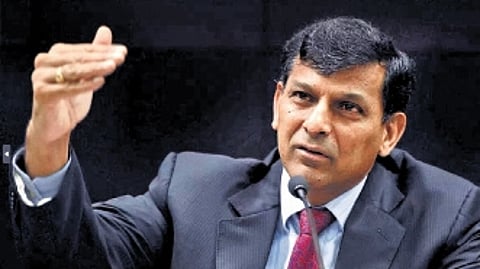

Often books on economics seem to have a niche audience. What were you mindful of in order to reach widespread readership with this book?
We wanted to write this book for a larger audience to show what potential India has, and why we need a course correction to achieve it. We believe that on our current trajectory, we risk becoming old before we become rich, the pronouncements of our leaders notwithstanding. And too many of our people will not benefit from whatever wealth is being created—a recipe for conflict. If we want to grow with stability, we have to break the mould. The book is full of examples of how we have done it in small measure, and how we can do it to a much greater extent.
With AI disrupting the workplace, how do you imagine its integration creating a space for a new set of roles in the future?
All new technologies have typically been hyped as job-ending to an extreme degree. In the 1960s, a committee set up by US President Lyndon B Johnson proposed a universal basic income because robots would soon take over all jobs. That has not happened yet. We also cite a 2013 Oxford study in the book where two professors estimated that 47 per cent of US employment was at risk as a result of computerisation. Today, labour force participation in the US is at a 20-year high, and unemployment is at a near two-decade low. So clearly, the professors were mistaken, at least about the pace of change. Undoubtedly, generative-AI will cause a loss of some jobs, will aid most jobs and help people become more productive (some less if they goof off playing with Dall-E images), and create some new jobs. We should expect some mix of all three; whether the pace of change is faster than that caused by previous technological change remains to be seen. That is where possibly this time could be different.
What are the key industries today, and where do you believe India is heading when it comes to the rise in divisive politics, along with a disastrous sense of economic decision-making?
India is doing well for the rich and the upper middle class. They have good jobs, and government policies are helping them. The economy is not working so well for the lower middle class, who haven’t seen it produce the jobs they need. Our labour data are bad, but anecdotal evidence is worrisome. For instance, employment in agriculture, as a share of employment, is up, when economies should see it fall as they develop. The government’s emphasis on erecting tariffs to protect domestic producers and offering subsidies for manufacturing in India is simply not creating the jobs we need. We believe government spending priorities are wrong—why spend $2 billion in government subsidies on attracting Micron to set up a plant in Gujarat for just 5000 jobs in assembly and testing? Why not spend the money on improving the quality of our schools and colleges so that we can produce more capable workers and engineers that firms will be eager to hire? More generally, we argue in the book that India has to focus on building the human capital of its citizens—better nutrition, education and healthcare—and not be fixated on following a manufacturing export-led growth path a la China. Instead, let’s focus on an Indian way, which will emerge naturally once we focus on improving our fundamentals.
This may build on our strength in services (with jobs ranging from consultants and software engineers to sweepers and security guards) and services embedded in manufacturing, such as chip design, where India has a 20 per cent share of the world market. We don’t minimise the role that manufacturing will play, only suggest not over-privileging it with subsidies and tariffs, which echoes the mistakes we made during the License Permit Raj. For instance, it’s really short-sighted to propose limiting the import of computers to increase domestic production when computers are a key input to our most successful industry—software. There’s a lot that is going right in India today, but there’s a lot that’s also going wrong. Unfortunately, given the slant in much of the press, you would simply not know about the latter. That leaves problems unaddressed, and they fester.
Breaking the Mould
By: Raghuram Rajan, Rohit Lamba
Publisher: Penguin
Pages: 336
Price: Rs 699